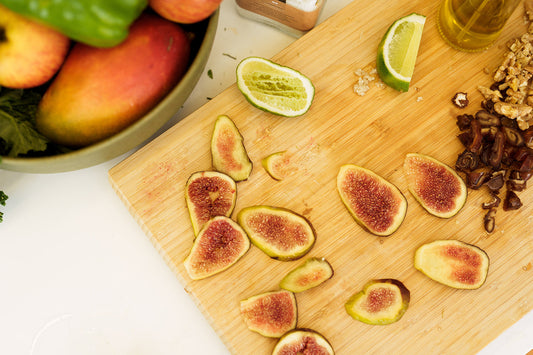- Getting All the Right Nutrients: Consuming a wide variety of foods increases the chance of obtaining all the necessary nutrients for optimal functioning. Each food group offers a unique set of nutrients, minerals, antioxidants, and phytochemicals that work together to support your health.
- Promoting Gut Health: A diverse diet promotes a healthy gut microbiome, which plays a crucial role in digestion, nutrient absorption, and immune function. Different foods provide specific types of fiber that nourish different strains of beneficial gut bacteria.
- Avoiding Nutrient Deficiencies: Eating the same thing every day increases the risk of nutrient deficiencies. No single food can provide all the essential nutrients in optimal amounts.
- Beating Boredom: Most people will get tired of eating the exact same thing, prepared in the exact same way, every single day. But experimenting with different foods can keep your meals fresh and help you look forward to fueling your body.
- Sticking With Your Diet: As a corollary to the above point about boredom, if you look forward to mealtime and all the fun, new recipes you can try, you’re more likely to stick with the alkaline diet for a longer period of time.
Is It Bad to Eat the Same Thing Every Day?
While certain categories of food, such as leafy greens or fruits, are often considered staples in an alkaline diet, relying solely on a limited range of foods can lead to nutritional imbalances.
Eating the same thing every day can result in monotony, decreased motivation, and limit the diversity of nutrients obtained from different sources. It’s important to remember that variety is the key to a well-rounded and sustainable alkaline diet.
However, this doesn’t mean you can’t prep a big batch of soup, mason jar salads, breakfast bars, or other meals to enjoy throughout the week. Repeating meals for a short period of time helps eliminate the “What do I eat for lunch today?” stress some people — especially those new to the alkaline diet — experience.
What Does a Balanced Alkaline Diet Look Like?
A balanced alkaline diet focuses on incorporating a wide array of nutrient-dense, alkaline-forming foods. Here are some key guidelines to consider:
- Emphasize Alkaline Foods: Include an abundance of fresh fruits and vegetables, especially leafy greens, vegetables, citrus fruits, and berries. These alkaline-forming foods are rich in essential nutrients, minerals, and antioxidants that promote a healthy acid-alkaline balance.
- Include Plant-Based Amino Acids: Opt for plant-based amino acids sources like legumes (e.g., chickpeas), walnuts, and quinoa. These options provide essential amino acids while being alkaline-forming.
- Choose Healthy Fats: Incorporate healthy fats from sources such as avocados, nuts, seeds, and extra virgin olive oil. These fats are rich in omega-3 fatty acids and contribute to overall health and well-being.
- Hydrate with Spring Water: Drinking spring water, which has a neutral pH, can help support the alkaline environment in the body. Additionally, staying hydrated is vital for various bodily functions.
- Practice Moderation: While it’s essential to emphasize alkaline-forming foods, a balanced alkaline diet also includes ancient grains, which are different from starches like rice and flour. Try quinoa, spelt, or fonio to replace rice and pastas.



















































1 comment
This is very good information